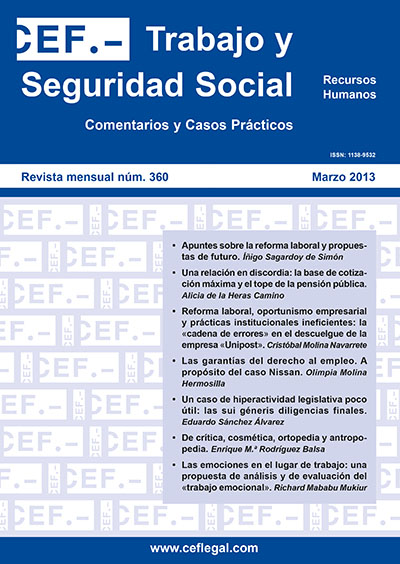Labour reform, disloyalty business and institutional inefficient practices: the «chain of errors» in the take out of the enterprise «Unipost»
DOI:
https://doi.org/10.51302/rtss.2013.3108Keywords:
collective agreements, transational costs, labour market institutionsAbstract
Deviations by collective agreements through the procedures provided in article 82.3 ET is emerging as one of the main ways of achieving internal flexibility, so that the devaluation of terms and conditions agreed to serve as an useful alternative to destruction massive job. The first practice for this purpose after labour reform this year show remarkable mismatches, so that the interpretation of the same make both public agencies called to resolve these disputes, where there is disagreement between management and labour, which often happen, the courts will be very important to lay adequate foundations operating. Loyal cooperation between the two sides of labour relations is a necessary condition for the instrument of the failure of agreements –«takes out»– to fulfill the role assigned by law, facilitating the exchange of lower wages for continuity of employment.
However, the first judgments given on the merits by the National Advisory Commission on Collective Agreements as well as the first judgment of the High Court ratifying it not seem to go the correct way. The result is an undue confusion among the so-called «trial of proportionality», not only lawful but necessary, and the «Trial of opportunity» of justification, and even the procedure, warring, by moving the position of the employer protected by the article 38 EC, not adjusted to the Law and Right. This is without prejudice, of course, to highlight the more than dubious constitutionality of this derogation mechanism assurance regarding the binding force of collective agreements ex article 37 link to article 28 of the Spanish Constitution.


















